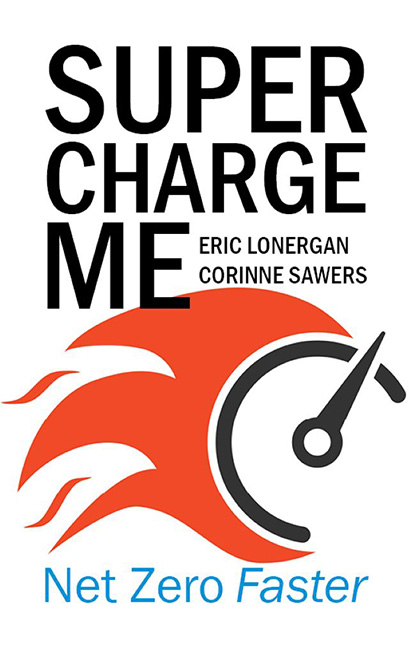Book contents
- Frontmatter
- Contents
- Acknowledgements
- Introduction: A Failure of the Mind
- 1 Supercharging: What is it?
- 2 Corporate Philosophers
- 3 Money Gets the Message
- 4 Supercharge the Individual
- 5 Supercharge the Nation
- 6 Supercharge the World
- 7 Why This is Not a Book About Trees
- Conclusion: Speaking With One Voice
- Notes
- Index
6 - Supercharge the World
Published online by Cambridge University Press: 20 January 2024
- Frontmatter
- Contents
- Acknowledgements
- Introduction: A Failure of the Mind
- 1 Supercharging: What is it?
- 2 Corporate Philosophers
- 3 Money Gets the Message
- 4 Supercharge the Individual
- 5 Supercharge the Nation
- 6 Supercharge the World
- 7 Why This is Not a Book About Trees
- Conclusion: Speaking With One Voice
- Notes
- Index
Summary
Corinne: We have tried to ground supercharging in pragmatism. We have proposed policies consistent with an honest take on political, social, psychological and economic reality. Before we describe our proposals to supercharge the world, we need a blunt assessment of the constraints on global policy-making. Global politics often feels like a chaotic set of events that don’t make sense, but we can observe some very common threads. Our friend, Mark Blyth, describes the world pithily: “The era of neoliberalism is over. The era of neo-nationalism has just begun.” You and Mark discuss the emergence of the era of nationalism extensively in Angrynomics. One way to make sense of politics is to think in terms of trends and the incentive structures that politicians are operating under. The simplest incentive politicians have is to get elected. Let's discuss what neo-nationalism is, and how it influences that incentive to get elected.
Eric: In representative democracies where elections are often swayed by the votes of relatively small minorities, using nationalism to swing a decisive minority of the electorate is an obvious strategy for politicians to exploit. It is also striking that a political system like China’s, which does not hold national-level elections, also harnesses anti-other ideology (usually anti-America) to unify and motivate the domestic population. Tribalism is a motivating instinct which is very easy to switch on. We see this within advanced economies like the UK, we see this in former communist countries like Poland and Hungary, and we see this in emerging economies like Turkey and Russia. Trump's “Make America Great Again” adds nostalgia to Berlusconi's slogan, “Forza Italia”. Tribalism is an electoral and political strategy either to disguise the true agenda, or to compensate for an intellectual vacuum.
Corinne: How does this compare to the era of neoliberalism?
Eric: The era of neoliberalism broadly refers to a period from the early 1980s until the mid-2000s. It was defined by a shared set of economic beliefs across the western developed world, and from the late 1980s, across former communist countries as well. This period was defined by a consensus in economic policy, devolving control of industry to the private sector, increasing the role of markets in labour and product markets, and retaining a narrowly-defined role for the state.
Corinne: The role of the state being technocratic governance of economic policy, with varying degrees of welfare provision.
- Type
- Chapter
- Information
- Supercharge MeNet Zero Faster, pp. 133 - 156Publisher: Agenda PublishingPrint publication year: 2022



